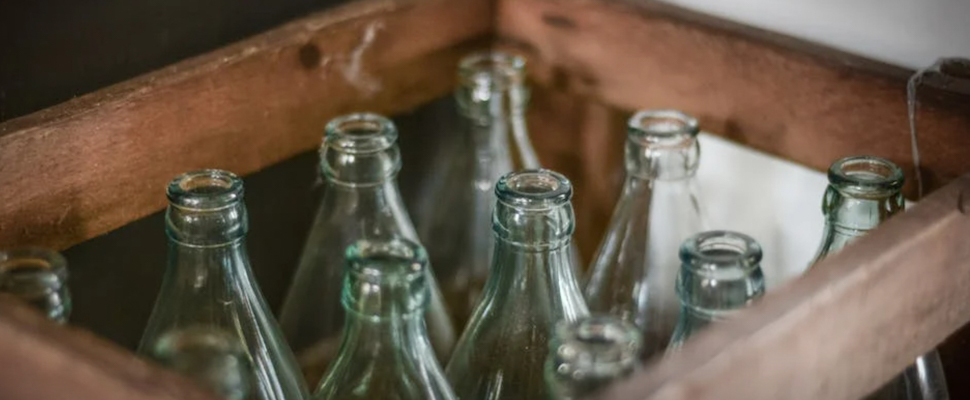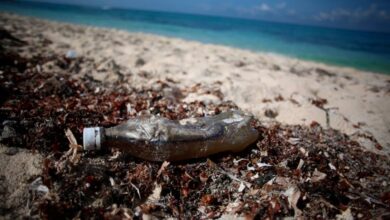Ecological bottles: how to choose the best one for you?
Sustainable bottles can be one of the main strategies to save the environment .

Finding the way to choose the most functional one can be difficult, so let’s try to clear it up. / Photo: Pexels
LatinAmerican Post | Miriam Guasch
Listen to this article
Leer en español: Botellas ecológicas: ¿cómo elegir la mejor?
When Pietro Guglielminetti designed the first water bottle for soldiers going to war in 1851, he never imagined that many years later the same object would be used for another type of battle: the battle against climate change
Why plastic bottles are harmful for the environment?
In recent years, more and more people are talking about pollution by plastic materials and all the consequences that brings, especially for marine ecosystems . We all have in mind the shocking images of seas littered with floating plastic debris.
The reason for this great environmental damage comes from the fact that plastic is a non-biodegradable material and in nature it takes many years to disintegrate . But is there anything we can do to improve the situation? We can start using a bottle, a great ally both for the environment (because it helps to reduce plastic waste related to buying water bottles), and for our health (because it helps us remember to drink more water, helping to improve our daily hydration).
The water bottle is a very useful object for storing drinks of various types, both hot and cold, combining the aesthetic with the ethical side. There are many types of water bottles on the market today: plastic, glass, steel, aluminum, even pocket-sized , many of which can even be personalized.
Finding the way to choose the most functional one can be difficult, so let's try to clear it up.
Also read: Opinion: Is it really in our hands to stop climate change?
Which bottle to choose?
The water bottle market is constantly changing and it is increasingly difficult to know which one best suits our needs. If we are based on an ethical choice, then the best classification that can be made would be on the material from which they are made.
PLASTIC BOTTLE
-
Pros: But isn't plastic bad? Yes, but this time we are talking about a more resistant and non-disposable plastic that maintains the lightness and practicality of the normal plastic bottle.
-
Cons: Plastic contributes more to the formation of mold and odor-causing bacteria that is often difficult to eradicate. In addition, they do not last long and the problem of their elimination persists.
GLASS BOTTLE
- Pros: Glass is a great material for holding liquids. It is fully recyclable and does not absorb any type of odor from the liquids it contains. Not only that: the glass used for this type of bottle is of the borosilicate type, that is, with high durability characteristics, less fragile than the traditional one, they are resistant even to extreme temperatures, both high and below zero.
- Cons: It weighs more than water bottles made from other materials and can easily break if dropped.
ALUMINUM BOTTLE
- Advantages: one of the advantages of the aluminum thermal bottle is undoubtedly its lightness, similar to that of a plastic bottle.
- Cons: Aluminum is not a stainless material, so aluminum heated flasks typically have a ceramic inner liner that retains more liquid odors. This means that they require more careful and constant maintenance.
STEEL BOTTLE
- Advantages: stainless steel is the ideal material to make a bottle: it is resistant, stainless, ecological and with excellent thermal insulation capacity. This means that even inserting acidic drinks there is no risk of corroding it. It should also be noted that stainless steel is completely unassailable by germs, molds and bacteria, which makes the flavors unalterable and keeps the packaging perfectly hygienic.
- Cons: It is heavier than the other types of materials.
How to clean reusable bottles?
Washing the bottles and removing all bad odors is fairly straightforward, but a little daily care is required for optimal maintenance.
Fill the bowl with water and a drop of dish soap, shake vigorously for a few seconds, then empty it and let it dry .
If this is not enough, to eliminate the most stubborn odors you can use baking soda and white vinegar , leave the solution to act for a few minutes and rinse. If the bottle is made of aluminum, avoid cleaning it with acidic substances or baking soda .
Some types of water bottles can also be washed in the dishwasher, but you should always refer to the instructions .
There are many small daily actions that we can do every day to limit waste and the production of plastic objects and for each of them there is a sustainable alternative available to everyone. Using a reusable bottle is a small step towards a lifestyle that is increasingly zero waste.




